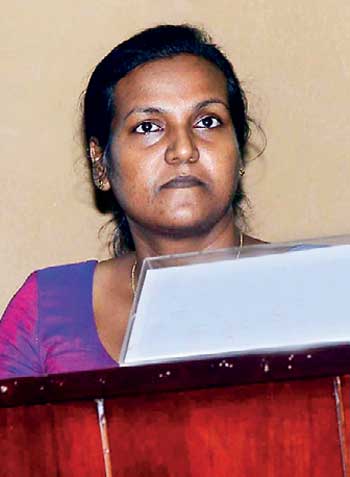30 Jan 2018 - {{hitsCtrl.values.hits}}
Sri Lanka faces the struggle of proving to the world that the troublesome khapra beetle is not present in the country, as a Russian fact-finding mission arrives this week.
The Sri Lanka Tea Board, at the time of a tea consignment to Russia being quarantined and tea exports to Russia being temporarily banned, had insisted that Sri Lanka is not an origin point for khapra beetles and that the consignment may have been contaminated by a poorly cleaned container, which had previously carried goods from a country the beetle originates from.

However, Plant Quarantine Service Assistant Director J. Nimanthika admitted that foreign quarantine services had detected khapra beetles in Sri Lankan exports on four instances in the past, despite the local authorities not coming across the species over the last 20 years.
She said that Vietnam had complained twice over the species being present in wheat exports from Sri Lanka, while once in a rice consignment to the US, the genus, but not the species of the beetle, was recorded.
“The problem is that in 2004 there was a record made by the European Plant Protection Organisation that Sri Lanka has the khapra beetles, although we have not come across for 20 years in export inspection. There was a record and therefore Sri Lanka was recorded as a khapra beetle country,” she said.
Therefore, many countries across the world have now classified Sri Lanka as a country where the khapra beetle is present.
Sri Lanka’s main agriculture crop is rice, which is a staple, along with other grains, for the khapra beetle.
Nimanthika said that an internationally accepted study has not been conducted to ensure that the beetle is not present in Sri Lanka and that the lack of local records of the beetle’s presence in the country is not an assurance that it is not present.
“So we can’t say that the species is not present in Sri Lanka but we have already passed the message that the species is not present in Sri Lanka. We had to do it to protect the industry,” she said. Surveys have to be initiated she said but the Russian delegation is visiting this week.
“When they (Russians) come to Sri Lanka, we will have two challenges: first they will ask whether we have official records to say that we don’t have the species. We have to somehow defend it. We have to at least initiate surveys. And now that we have confirmed that we have no species, we have to be careful in the future consignments to ensure that the pest is not present in the consignments,” she said.
She said that during visits to tea factories, she had witnessed possibilities of cross contamination between raw tea leaves and processed tea and that these could potentially lead to snags for the tea industry, noting that although khapra beetles feed on grains, if usual nourishment isn’t around, the beetle is resilient enough to feed on other material.
She however said that the possibility of the beetle being in Sri Lanka is small.
“We have to be very vigilant. I’m talking about a very minute possibility,” she said.
Meanwhile, Sri Lanka Tea Board Chairman Rohan Pethiyagoda said that the tea quarantine and the temporary ban was a diplomatic incident, which coincided with Sri Lanka banning asbestos imports from Russia and that the Russians have so far not even checked whether Sri Lanka is following the proper fumigation and phytosanitary protocols Sri Lanka unilaterally agreed to conduct to ensure the quality of Ceylon Tea.
Tea is Sri Lanka’s fourth largest foreign exchange earner after worker remittances, apparel exports and tourism. Tea exports amounted to just over US $ 1.5 billion in 2017 and Russia was Sri Lanka’s third largest tea export market with a market share of 11.55 percent.
20 Nov 2024 39 minute ago
20 Nov 2024 47 minute ago
20 Nov 2024 57 minute ago
20 Nov 2024 1 hours ago
20 Nov 2024 1 hours ago